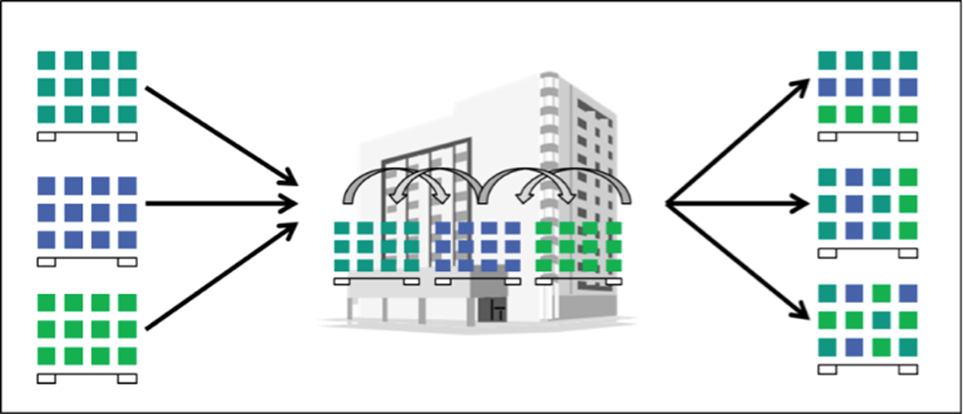Supply Chain Management
In times of globalization, outsourcing and the individualization of customer behaviour, distribution centers are an important success factor in distribution networks. They significantly determine the costs and performance of logistics networks and their companies. Distribution centers are nodes within logistics networks that receive, temporarily store and forward goods. They are, for example, warehouses, logistics centers, distribution centers or cross-docking centers.
Distribution centers are necessary if production cannot be synchronized with customer behavior. In addition, their establishment can prove useful against the background of batch size production, the utilization of transport capacities and the guarantee of the required delivery times. Logistics services only generate costs and do not increase the value of the goods. Against this background, a comprehensive analysis and continuous improvement of distribution centers with regard to their material flow planning and control as well as the organizational and technical design of their individual processes is essential.
Depending on the specific issue at hand, we use various modelling approaches to analyze distribution centers, for example from the fields of queueing theory, simulation and mathematical optimization. In our work, we examine the organizational and planning tasks as well as innovative technical developments and warehouse technologies of a distribution center. Benchmarking is an important tool in the analysis of distribution centers. Fur this purpose, the IFL developed the Distribution Center Reference Model (DCRM), a standardized procedure for the objective analysis, comparison and evaluation of distribution centers.
| Title | Contact |
|---|---|
| Distribution Center Reference Model (DCRM) | |
| 4D4L - Data- and Target-Driven Sequential Decision Making for Time-Dynamic Logistics Systems |


